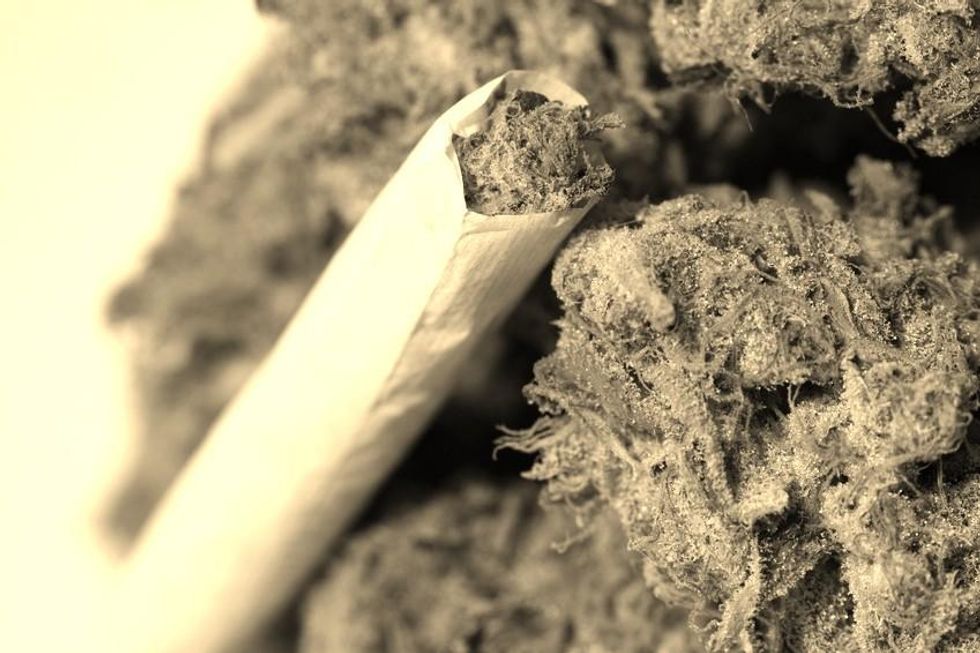While Colorado and Washington have de-criminalized recreational use of marijuana and twenty states allow use for medical purposes, a Louisiana man was sentenced to twenty years in prison in New Orleans criminal court for possessing 15 grams, .529 of an ounce, of marijuana.
Corey Ladd, 27, had prior drug convictions and was sentenced September 4, 2013 as a "multiple offender to 20 years hard labor at the Department of Corrections."
Marijuana use still remains a ticket to jail in most of the country and prohibition is enforced in a highly racially discriminatory manner. A recent report of the ACLU, "The War on Marijuana in Black and White," documents millions of arrests for marijuana and shows the "staggeringly disproportionate impact on African Americans."
Nationwide, the latest numbers from the FBI report that over 762,000 arrests per year are for marijuana, almost exactly half of all drug arrests.
Even though blacks and whites use marijuana at similar rates, black people are 3.73 times more likely to be arrested for possession of marijuana than white people.
For example, Louisiana arrests about 13,000 people per year for marijuana, 60% of them African Americans. Over 84 percent were for possession only. While Louisiana's population is 32 percent black, 60 percent of arrests for marijuana are African American making it the 9th most discriminatory state nationwide. In Tangipahoa Parish, blacks are 11.8 times more likely to be arrested for marijuana than whites and in St. Landry Parish the rate of black arrests for marijuana is 10.7 times as likely as whites, landing both parishes in the worst 15 in the country.
In Louisiana, a person can get up to six months in jail for first marijuana conviction, up to five years in prison for the second conviction and up to twenty years in prison for the third. In fact, the Louisiana Supreme Court recently overturned a sentence of five years as too lenient for a fourth possession of marijuana and ordered the person sentenced to at least 13 years.
Jack Cole of Law Enforcement Against Prohibition (LEAP) argues that "the "war on drugs" has been, is, and forever will be, a total and abject failure. This is not a war on drugs, this is a war on people, our own people, our children, our parents, ourselves." LEAP, which is made up of thousands of current and former members of the law enforcement and criminal justice communities, has been advocating for the de-criminalization of drugs and replacing it with regulation and control since 2002.
Arrests and jail sentences continue even though public opinion has moved against it. National polling by the Pew Research Center show a majority of people support legalizing the use of marijuana. Even in Louisiana, a recent poll by Public Policy Polling found more than half support legalization and regulation of marijuana.
Karen O'Keefe, who lived in New Orleans for years and now works as Director of State Policies at the Marijuana Policy Project, said "A sentence of 20 years in prison for possessing a substance that is safer that alcohol is out of step with Louisiana voters, national trends, and basic fairness and justice. Limited prison space and prosecutors' time should be spent on violent and serious crime, not on prosecuting and incarcerating people who use a substance that nearly half of all adults have used."
Defense lawyers are appealing the twenty year sentence for Mr. Ladd, but the hundreds of thousands of marijuana arrests continue each year. This insanity must be stopped.



